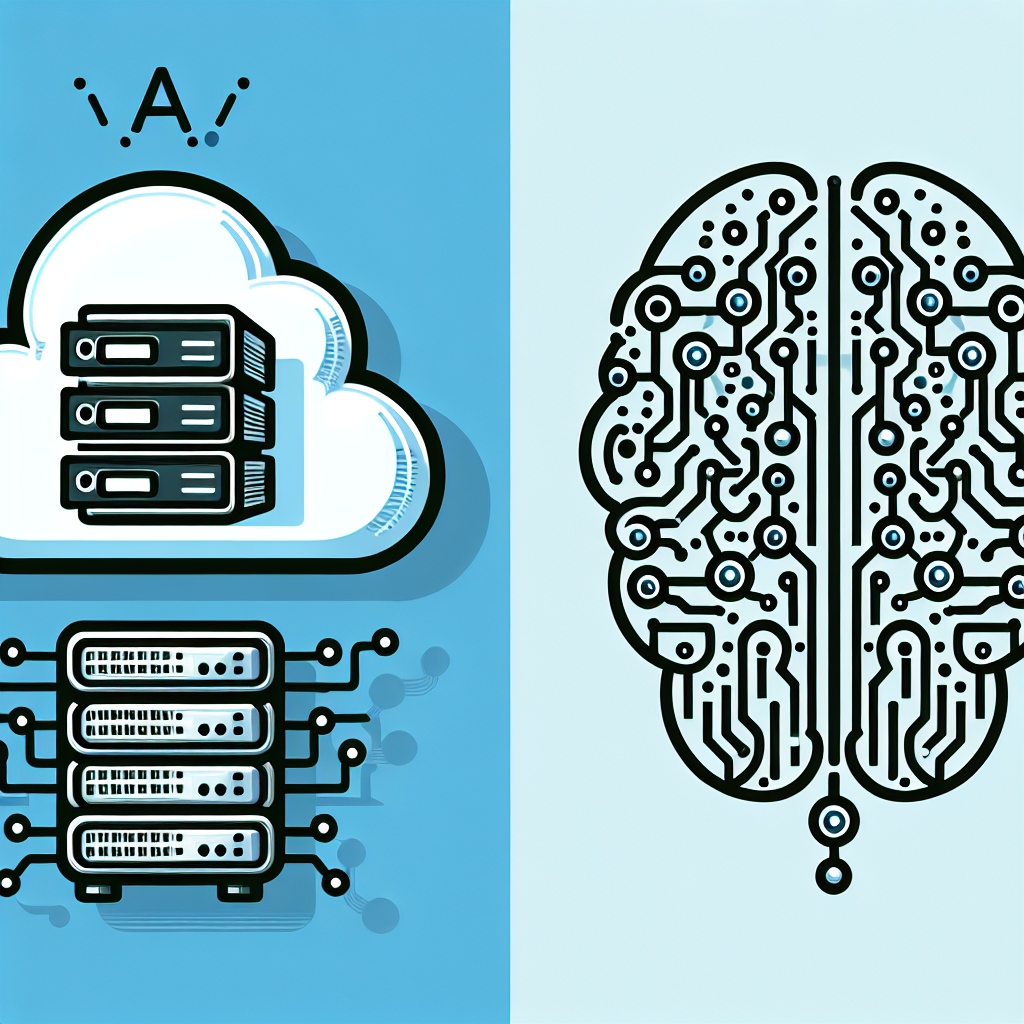The Impact of AI on Cloud Data Storage
Artificial Intelligence (AI) has been revolutionizing various industries, and cloud data storage is no exception. With the increasing amount of data being generated every day, organizations are turning to AI to help manage and analyze this vast amount of information stored in the cloud. This article explores the impact of AI on cloud data storage and how it is changing the way businesses store, manage, and utilize their data.
AI-powered Data Management
One of the key areas where AI is making a significant impact on cloud data storage is in data management. AI algorithms can help organizations manage their data more efficiently by automating tasks such as data classification, deduplication, and encryption. This not only saves time and resources but also improves the overall data security and integrity.
AI can also help organizations optimize their cloud storage resources by analyzing patterns in data usage and predicting future storage needs. By automatically scaling storage capacity up or down based on these predictions, organizations can ensure they have the right amount of storage at the right time, without overspending on unnecessary resources.
Another way AI is transforming data management in the cloud is through automated data tagging and categorization. AI algorithms can analyze the content of data and assign relevant tags or categories to help users quickly find and retrieve the information they need. This not only saves time but also improves the overall user experience of cloud storage solutions.
AI-driven Data Analysis
In addition to data management, AI is also revolutionizing data analysis in the cloud. AI-powered analytics tools can help organizations extract valuable insights from their data, enabling them to make more informed business decisions. By leveraging machine learning algorithms, organizations can uncover hidden patterns, trends, and correlations in their data that may have otherwise gone unnoticed.
AI can also help organizations automate the process of data analysis, allowing them to analyze large datasets in a fraction of the time it would take manually. This not only improves efficiency but also enables organizations to make faster decisions based on real-time data.
Furthermore, AI can help organizations improve the accuracy of their data analysis by reducing the risk of human error. By automating the process of data cleansing and preprocessing, AI algorithms can ensure that the data being analyzed is clean, consistent, and accurate, leading to more reliable insights and predictions.
AI-powered Data Security
Data security is a top priority for organizations storing their data in the cloud. AI is playing a crucial role in enhancing data security by detecting and mitigating potential threats in real-time. AI-powered security tools can analyze network traffic, monitor user behavior, and identify anomalies that may indicate a security breach.
AI can also help organizations protect their data from cyber threats by implementing advanced encryption techniques and access controls. By continuously monitoring data access and usage patterns, AI algorithms can detect unauthorized access attempts and alert security teams to take immediate action.
Furthermore, AI can help organizations comply with data privacy regulations by automatically identifying and redacting sensitive information in their data. By applying AI-powered data masking techniques, organizations can ensure that only authorized users have access to sensitive data, while protecting the privacy of individuals.
FAQs
1. How is AI improving data management in the cloud?
AI is improving data management in the cloud by automating tasks such as data classification, deduplication, and encryption. AI algorithms can help organizations manage their data more efficiently and securely, while also optimizing storage resources and improving data accessibility.
2. How is AI transforming data analysis in the cloud?
AI is transforming data analysis in the cloud by enabling organizations to extract valuable insights from their data quickly and accurately. AI-powered analytics tools can uncover hidden patterns, trends, and correlations in large datasets, helping organizations make more informed business decisions.
3. How is AI enhancing data security in the cloud?
AI is enhancing data security in the cloud by detecting and mitigating potential threats in real-time. AI-powered security tools can monitor network traffic, user behavior, and data access patterns to identify anomalies that may indicate a security breach. Additionally, AI can help organizations protect their data from cyber threats by implementing advanced encryption techniques and access controls.
4. What are some benefits of using AI in cloud data storage?
Some benefits of using AI in cloud data storage include improved data management efficiency, enhanced data analysis capabilities, and better data security. AI can help organizations automate routine data management tasks, extract valuable insights from their data, and protect their data from cyber threats, leading to increased productivity and security.
5. Are there any challenges to implementing AI in cloud data storage?
While AI offers many benefits for cloud data storage, there are some challenges to implementing AI, such as data privacy concerns, integration with existing systems, and the need for skilled AI professionals. Organizations must carefully consider these challenges and develop a comprehensive AI strategy to ensure successful implementation and adoption.
In conclusion, AI is having a profound impact on cloud data storage, revolutionizing the way organizations manage, analyze, and secure their data. By leveraging AI-powered tools and techniques, organizations can improve data management efficiency, enhance data analysis capabilities, and strengthen data security in the cloud. As AI continues to evolve, its role in cloud data storage will only grow, enabling organizations to unlock the full potential of their data and drive innovation and growth.

